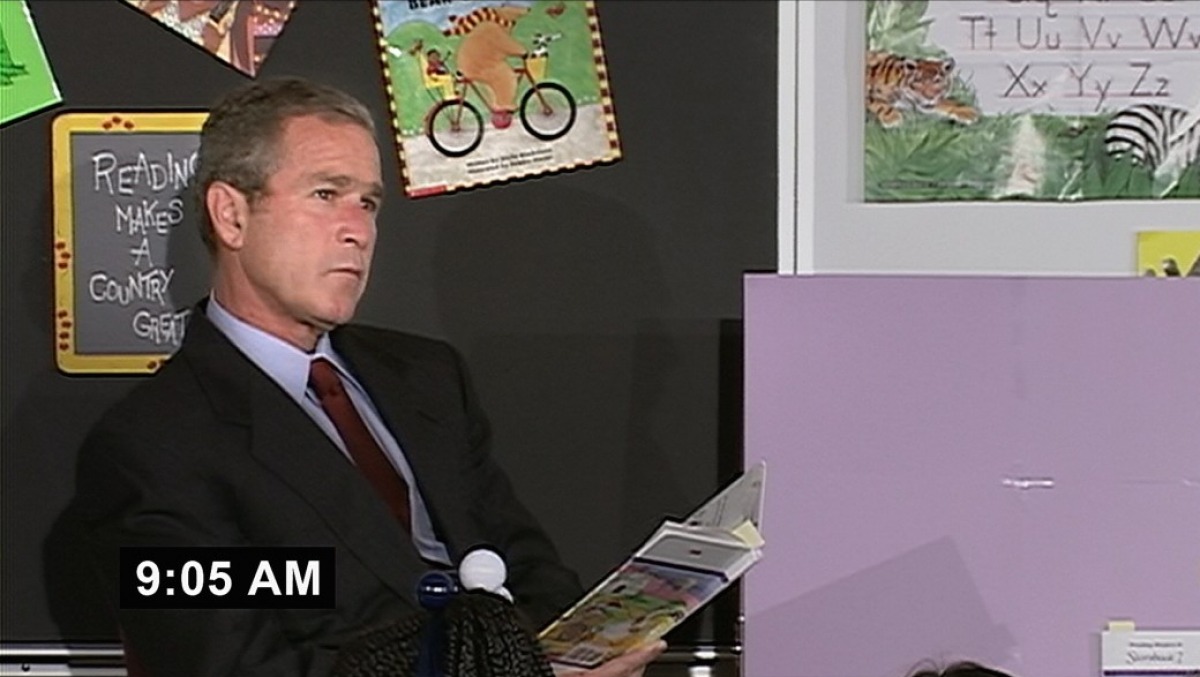6. Dr Strangelove or: How I Learned to Stop Worrying and Love the Bomb (Stanley Kubrick, 1964)

Many consider Stanley Kubrick to be amongst the most important contributors to world cinema during the 20th Century. He was a visionary who would often assume control over most aspects of the filmmaking process.
In regards to Dr Strangelove, Kubrick wished to respond to the ‘balance of terror’ of the Cold War; a unique reference to the nuclear arms race between the United States and the Soviet Union, and its paradoxical creation of a tenuous peace between the two super powers.
After the close call of the Cuban Missile Crisis in 1962, widespread fears for survival in a nuclear age inspired Kubrick to focus his political satire on the notion of ‘mutual assured destruction.’
The filmmaker’s goal was to deter global powers from instigating a nuclear war. The success of Dr Strangelove lies in the outstanding performance of its lead actor Peter Sellers, who improvised all three of his roles in the film.
7. All Quiet on the Western Front (Lewis Milestone, 1930)

Considered one of the most realistic accounts of the First World War, All Quiet on the Western Front gave voice to an entire generation that had been broken by harrowing wartime experiences.
First published in a German newspaper in 1928 and in book form the following year, Erich Maria Remarque’s novel vividly illustrates the tragic effects trench warfare had on the physical and mental health of most soldiers.
However, as revolutionary as this viewpoint was in Germany during the interwar years, the book provoked strong opposition from numerous critics who labelled it an example of anti-war propaganda. Remarque was accused of allowing creativity to fuel his pacifist agenda. Copies of the novel were burnt after the Nazi Party’s ascent to power in 1933.
Lewis Milestone’s film adaptation in 1930 would eventually suffer the same response. Regardless of the film’s accuracy and historical significance, many in Europe disagreed with its perceived anti-German undertones, fearing such sentiments would spread throughout the continent.
After a brief theatrical run, the Nazi Party officially prohibited all German cinemas from screening the film. Prior to this, the film’s producer Carl Laemmle Jr. made additional cuts to significant portions of the story, altering its overall message in order to appease German audiences.
8. Fahrenheit 9/11 (Michael Moore, 2004)

Director Michael Moore is no stranger to controversy. Although he rejects being labelled a political activist, Moore has definitely made his opinions on political matters known to the world through his interviews and documentaries. His infamous acceptance speech at the 2003 Academy Awards Ceremony – in which he denounced George W. Bush’s decision to invade Iraq – created quite an uproar from the audience and eventually resulted in death threats from members of the public.
Rather than cower in defeat, Moore decided to fight back by making a documentary that challenged the President of the United States, the War on Terror, and how both topics were covered by the corporate media in America. Thus, Fahrenheit 9/11 came into being.
Moore’s film explores various issues of the Bush Administration through a critical lens, including: the controversy over the 2000 presidential election, Bush’s response to the attacks on the World Trade Centre, the complex relationship with Saudi Arabia, the signing of the Patriot Act, and of course the Iraq War.
After its initial release, the film received praise from critics and became one of the highest grossing documentaries. However, the film soon generated intense opposition and disputes over its accuracy. Many viewers regard the project to be an example of left-wing propaganda. Furthermore, the director’s open desire for the film to influence the upcoming election in 2004 (in favour of presidential candidate John Kerry) did not help matters.
9. Munich (Steven Spielberg, 2005)

Sometimes the same film can be used to support opposing sides of a certain political issue. Take Steven Spielberg’s Munich; a historical thriller based on the Mossad’s secret war with the Palestinian terrorist cell Black September following the bloody massacre at the 1972 Summer Olympics.
The film explores the grey areas between justice and retribution as the protagonist, Avner Kaufman, leads a team of Jewish agents across Europe on a ruthless manhunt to locate and murder the alleged members of Black September. Before and after each hit, the characters debate the morality behind their actions and whether or not they are making a difference.
It is no coincidence that a film which assesses the rationale of terrorism and counterterrorism in the 1970s emerged during a dramatic shift in western society from a secure to an insecure paranoia. The moral qualms that exist within national security and the need to better understand the ‘new enemy’ are both reinforced by Spielberg’s portrayal of an earlier war against terror.
Spielberg strove to keep both himself and his film neutral in regards to the Israeli-Palestinian debate. However, criticism from both sides still emerged over the political stance of Munich.
Some members of the Muslim community considered the film to be an outright attack on Palestine and its place in the Middle East. For many Jews, the film was an incorrect moral equation over the deaths of both the innocent and the guilty. Various Zionist groups pressured Jewish audiences to boycott the film.
10. Syriana (Stephen Gaghan, 2005)

Another film released in 2005 that acknowledged the trends of a post-9/11 society is Stephen Gaghan’s Syriana. While the film’s multiple narratives have created confusion for many viewers, there is no ambiguity over its political stance.
Over the last decade, commercial cinema has adjusted to the mounting anxieties of audiences towards the harsh realities of terrorism. In today’s films there are high levels of uncertainty and imperfection in regards to heroes and nations. The threat to civilisation is no longer precise and locatable.
Syriana joins a list of films produced by Hollywood that endeavoured to challenge the legitimacy of America’s presence in the Middle East during the wars in Afghanistan and Iraq.
The film highlights the petroleum politics that occur within the United States and the Persian Gulf and the serious economic, legal and social consequences it causes. Although Syriana has been classified as mere anti-war propaganda in relation to the conflict between America and parts of the Middle East, many critics outside the United States believe that the film holds back on American accountability.
There you have it, ten influential films used for propaganda purposes. Do you agree with this list? What other examples of propaganda films can you think of? Feel free to leave a comment.
Author Bio: Jonathan Knox holds a Bachelors Degree in Film and History, and is currently completing his Masters in Archiving. He is based in Wellington, New Zealand, and spends his spare time writing short stories and screenplays.